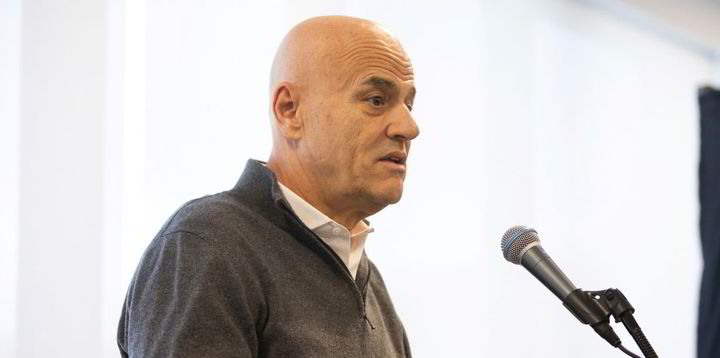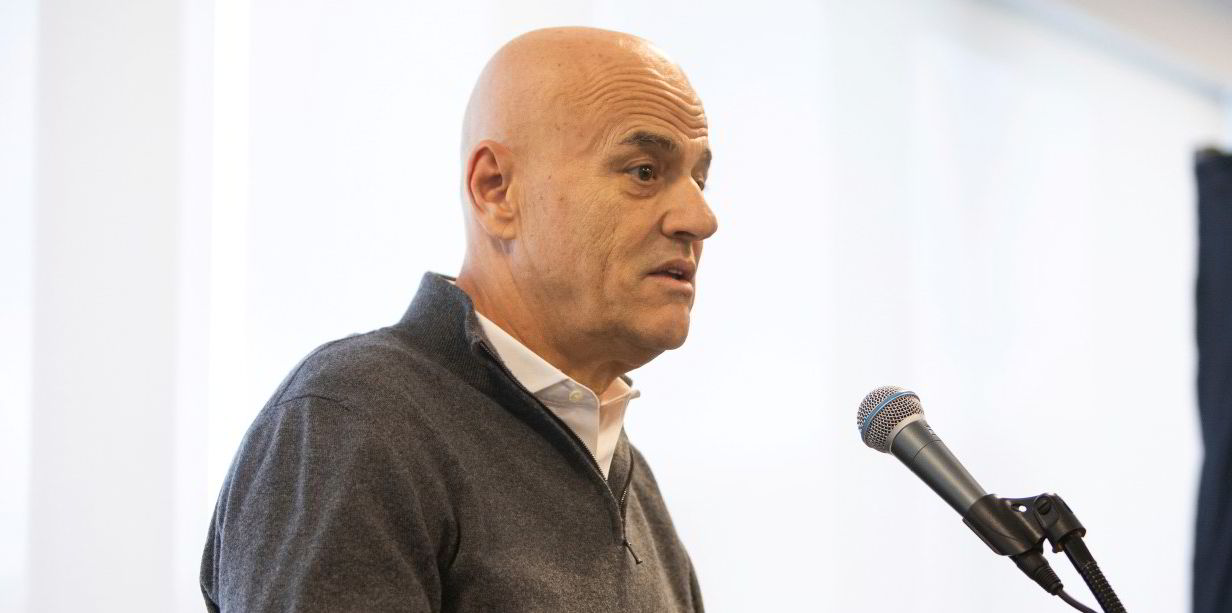Italy’s Eni is dragging Russian gas giant Gazprom into an international arbitration forum over systematic reductions in pipeline gas supply that forced the company to scramble for replacement supplies, often at higher cost against the Russian contracted gas deliveries.
“The reductions applied by [Gazprom’s subsidiary] Gazprom Export are subject to confidential arbitration proceedings,” Eni said in reply to a question from shareholder in a document. “The [long-term] contracts with Gazprom Export are still in force”, it added.
The document is part of reports and statements that Eni has prepared for its annual general meeting, which is due on 10 May.
Eni added that Gazprom’s gas supplies fell below the minimal contracted daily average since June last year.
This happened even though the Italian major had agreed to demands from Moscow to switch to a new payment system for Russian gas supplies that was not written in the long-term contracts.
The system had required Eni to open a dedicated bank account with Russian Gazprombank in Moscow to make payments for delivered gas, thus facilitating conversion into roubles.
Article continues below the advert
Gazprom has not commented on the arbitration demand, which follows similar moves by Germany’s Uniper and RWE and France’s Engie, but did refer to the international involving Eni arbitration in May 2022.
Hearings have been scheduled to take place only in May next year, Gazprom added.
In February, Eni chief executive Claudio Descalzi said the company had replaced 50% of what used to be the company’s imports of Russian gas, mainly through higher supplies from north and West Africa.
Descalzi said the company will replace 80% of Russian gas by the winter of 2023 to 2024, and 100% by 2025.
Gazprom disclosed appeals against the company in European arbitration tribunals have also been filed by Ukraine’s gas importer and distributor Naftogaz Ukrainy, Finland’s Gasum, RWE’s subsidiary RWE Supply & Trading, Poland’s gas importer and producer PNGiG – now part of country’s PK Orlen group and Engie.
Gazprom has not made formal disclosure of Uniper’s arbitration process but any damages relating to the cut in Russian gas supply would almost certainly run to several billion euros.
Uniper was the largest Russian pipeline gas importer in the country before 2022.
The halt in Russian gas supplies left the utility with huge losses and the company was rescued from bankruptcy by German state intervention last year.
Arbitration and sabotage
Though western industry analysts have repeatedly suggested that the Kremlin ordered the reduction in gas supply to Europe last year in retaliation for the bloc’s support for Ukraine following the Russian invasion, Gazprom has argued that its chief export pipeline to Europe, Nord Stream 1, was impossible to operate because international sanctions prevented the maintenance of gas-fired turbines that drives pipeline pumps.
The Nord Stream 1 brand new Nord Stream 2 pipelines were then hit by powerful underwater explosions near the Danish Island of Bornholm in the Baltic Sea at the end of September last year, making both pipelines permanently non-operational.
Some European commentators have suggested that Russia may have been motivated to carry out such sabotage if it offered a means of accusing the US of hostile acts while providing arguments for Gazprom to avoid mounting bills for the non-delivery of Russia gas, but the Kremlin blames the West for the explosions.
In the latest developments, an investigative documentary by four regional broadcasters, Denmark’s DR, Norway’s NRK, Sweden’s SVT, and Finland’s Yle found that Russian warships and supporting vessels had been detected in waters close the explosions occurred in September last year.
Denmark’s Defence Command has supported the veracity of another news report suggesting that a Danish patrol boat took 26 photos of a Russian submarine-rescue vessel adapted for crane-assisted underwater operations in the same area just days before the explosions.

